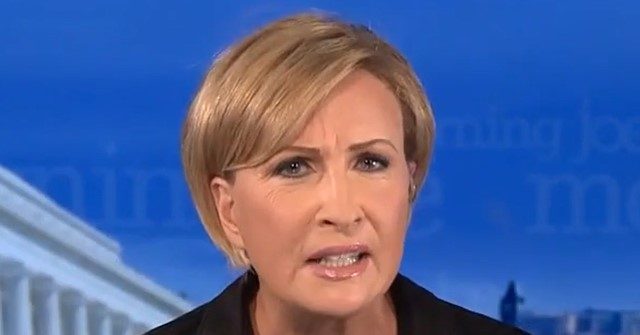On a recent episode of “Morning Joe,” MSNBC host Mika Brzezinski passionately criticized Fox News for its perceived complicity in downplaying what she categorized as former President Donald Trump’s “clear fascism.” Brzezinski argued that the political landscape demands a serious examination of Trump’s rhetoric, highlighting that all Americans, including Republicans, should reconsider their support for him. She emphasized the urgency of the situation, stating that Trump’s threatening statements pose a genuine risk to democratic freedoms. The tone was not merely one of critique but also a call to action, urging viewers to recognize the gravity of the former president’s intentions and the implications for political discourse in the country.
Brzezinski further scrutinized the relationship between Trump and Fox News, noting that Trump himself acknowledged receiving assistance from Fox personnel for his public appearances, suggesting a collusion of sorts between the network and the former president. Her remarks underscored a troubling dynamic where Trump feels comfortable in his interaction with Fox personalities, often sidestepping accountability for his comments. In her view, this creates a “safe space” for Trump, where he is free to express incendiary views without the checks and balances that typically govern political discourse in more reputable media outlets.
A central point of Brzezinski’s argument was exemplified in a recent interview where Vice President Kamala Harris confronted Fox News host Bret Baier for misleading viewers. She expressed her outrage at Baier for editing out some of Trump’s most dangerous comments during the campaign. According to Brzezinski, presenting a sanitized version of Trump’s rhetoric distorts public perception and endangers democratic principles. The implications of this media strategy are far-reaching, as it effectively emboldens Trump while simultaneously alienating his critics.
Brzezinski labeled Baier’s actions as a deliberate attempt to mislead the American public, calling it a “lie” since the interview was pre-recorded, and Baier was not caught off guard. This assertion reignited broader concerns regarding journalistic integrity and the responsibility that media outlets have in providing an accurate portrayal of political figures. Brzezinski called for accountability from journalists, arguing that they must not shy away from accurately representing the nature of Trump’s statements, especially when they carry implications that threaten democracy.
The host’s analysis extended to the broader ramifications of Trump’s rhetoric, particularly his talk of using military force against political adversaries. Brzezinski asserted that such declarations are not mere hyperbole; they represent a significant deviation from constitutional norms and a move toward authoritarianism. By highlighting Trump’s threats, she intended to illuminate the dangerous potential for his ideas to take root in the political mainstream, urging her audience to critically evaluate the implications of normalizing such discourse.
Ultimately, Brzezinski’s commentary reflects a deeper ongoing debate about media accountability, the nature of political discourse, and the responsibilities of citizens in safeguarding democratic values. Her remarks serve as a reminder of how critical it is to engage with the troubling aspects of political rhetoric seriously. As the landscape continues to evolve, the media’s role in shaping public understanding of these issues remains paramount, and Brzezinski’s impassioned appeal illustrates the necessity for vigilance in defending democratic principles against any encroachments, especially those that may masquerade as political theater.

